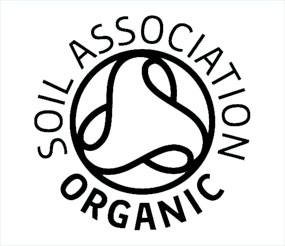
What does organic food mean is the question we have decided to consider for Organic September. At a time when the world as we know it could change irreversibly unless we do something differently. Urgently and dramatically.
Could organic agriculture be part of the solution?
What does organic food mean and what does organic farming mean?
As customers, we are bombarded with logos and labels – all designed to make us buy more. How do we navigate labels to find products that are really good for us and the environment?
When you see the Soil Association logo, you can relax. Certified organic products are different – this is not a lifestyle label – it really means something. Top chefs like Arthur Potts Dawson choose organic produce for their menus because of provenance but also taste. Organic veg, fruit and meat mean the highest quality food.
Organic produce is grown or made with ingredients that have not been exposed to almost 300 artificial pesticides many of which, like glyphosate have known carcinogenic properties. You will be buying and consuming ingredients which come from trusted sources that have been checked and rechecked by the Soil Association. All organic produce is free from artificial colours and preservatives, includes no GM ingredients and all organic food is free range and not subjected to routine use of antibiotics.

Wildlife conservation and biodiversity are central to the ethics of organic farming
On average plants, insects and birds are 50% more abundant on organic farms. Many artificial pesticides are non-specific, killing all living organisms in their path. This destroys food webs and reduces biodiversity. As we now know, biodiversity is critical for the survival of the planet and since 1970 we have lost half of all species in the UK and 98% of our wildflower meadows. Maintaining species diversity is as important as controlling climate change for our planet and organic farming leads the way.
“If nature does not thrive, farming cannot thrive”, Wendell Berry.
Nature can only thrive if soils are plentiful and teeming with life. All plants, animals and humans rely on productive soil and the billions of microorganisms that inhabit the black stuff. Recent research has shown that as a result of the devastating effects of pesticides and other toxic chemicals, topsoils throughout the world may have fewer than 60 years of life left. The pesticide cycle is addictive – the more pesticides that are applied, the more the soil needs in order to produce similar yields until the soil becomes totally depleted. With wind & rain causing soil erosion and run off, fields eventually become an agricultural desert.

In contrast, organic farms rely on about 20 natural substances such as clove oil and citronella to help control pests. Other methods such as companion planting, crop rotation and biological control also help to reduce bugs and predators and maintain a healthy soil. If all UK farming was organic, pesticide use would drop by 98% and soil would thrive and become plentiful again – just as it was before 1947 and the pesticide revolution. It is no surprise that organic soil sequesters more carbon than conventional soil, reducing carbon dioxide in the atmosphere and helping to control climate change.
Organic farming is central to getting our planet back on track
What’s the point of me studying science, when all you do is ignore it?”
“What’s the point of training to be an athlete, when I won’t have clean air to breathe?”
“What’s the point of studying history, when all of humanity is heading towards becoming history?”
We know that climate change and loss of biodiversity are the biggest challenges the Earth has ever faced. Climate strikes and petitions are really important to change politics and put the environment at the centre.

But each of has a part to play in our daily lives and the choices we make. By purchasing organic products you can help! Check out the Soil Association website and all the exciting certified brands you can support.


